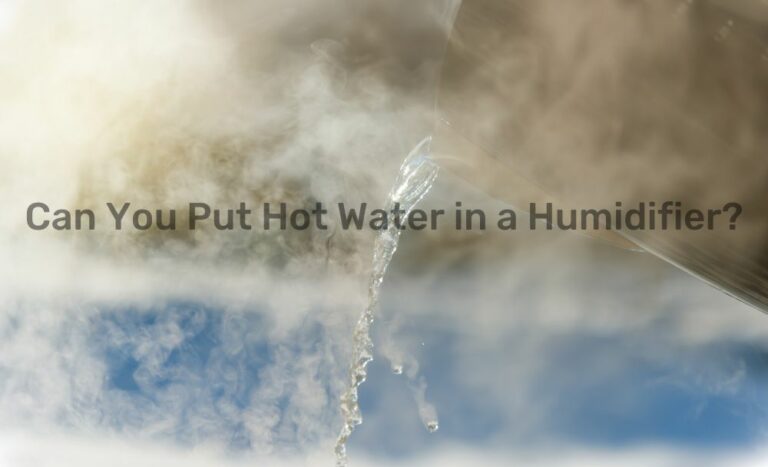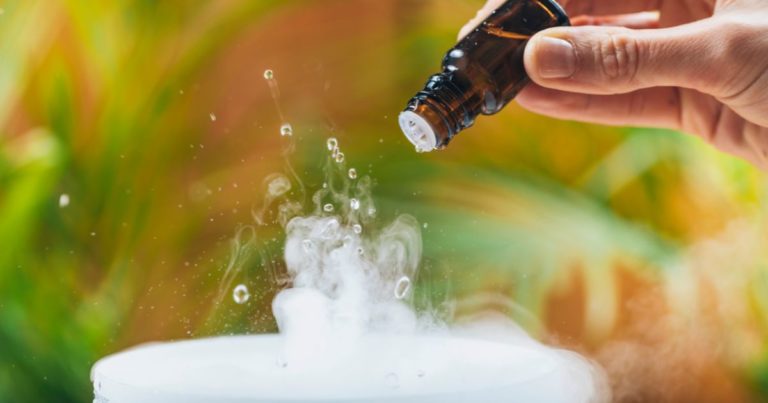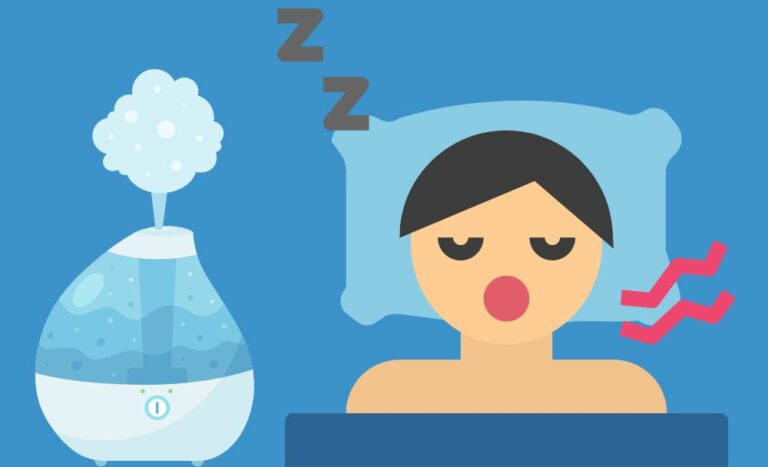Diffuser vs Humidifier: Differences and When to Use Each One
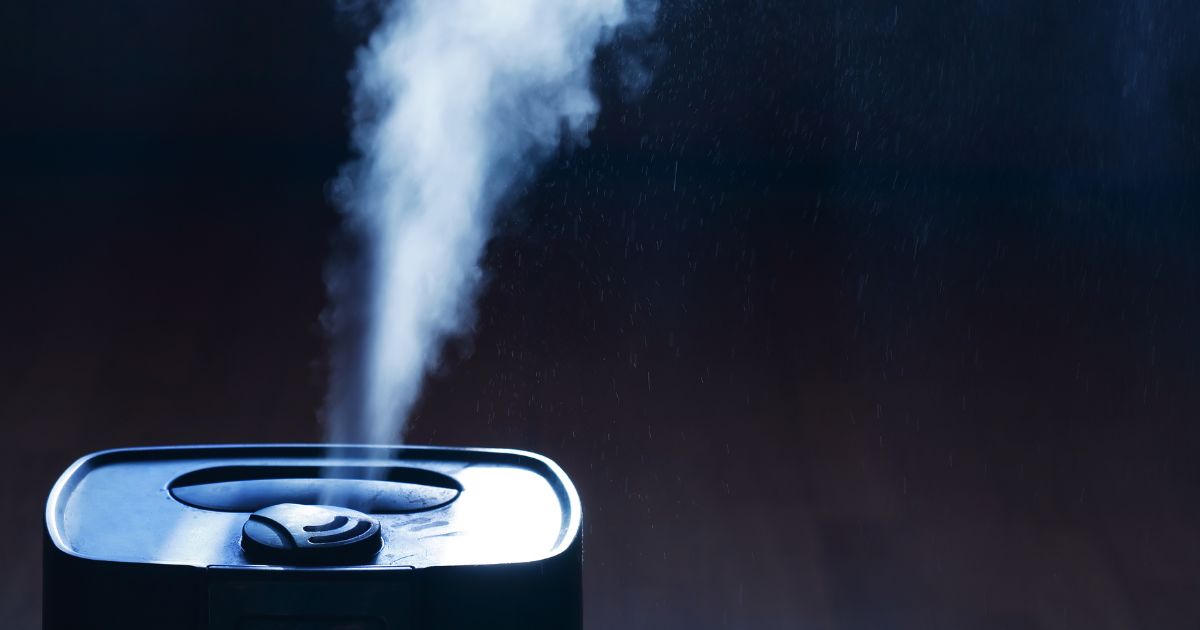
If there’s one thing you should know about a diffuser vs humidifier, it’s that they both add moisture to the atmosphere, but at very different levels.
Humidifiers are perfect for treating dry air, and allergies that occur with low humidity. Diffusers also add moisture to the air, but in a small quantity. They are primarily used to disperse essential oils.
This guide will help you understand the differences between diffusers and humidifiers, and when to use each one (or both) in different circumstances.
What Does a Diffuser Do?
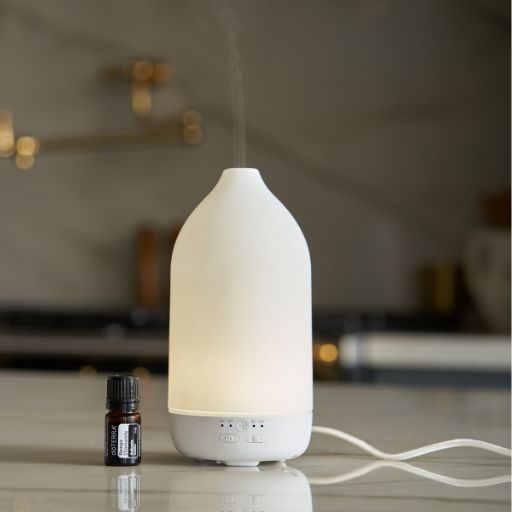
People usually use diffusers to diffuse essential oils into the air. They mix the oils with water vapors and release them into the air. Depending on their type, diffusers may form the vapors using heat, ultrasonic waves, or other methods.
Diffusers also expel water vapor into the air but aren’t as efficient as humidifiers. Of course, that’s to be expected since that isn’t their primary function. You can safely use essential oils in a diffuser, where as you cannot put essential oils in all humidifiers.
What Is a Humidifier?
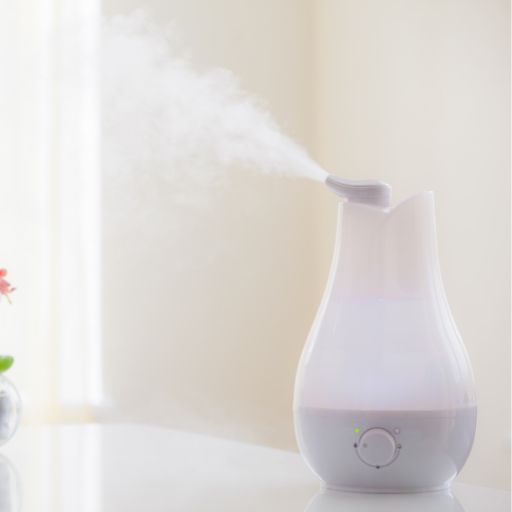
As the name indicates, humidifiers “humidify” the air. The device has a reservoir that you fill with water. Then, the device evaporates this water and adds it to the atmosphere, raising the humidity level.
There are multiple types of humidifiers, and the evaporation method varies depending on the type. A vaporizing humidifier will heat the water and release steam. On the other hand, an ultrasonic humidifier will evaporate the water using ultrasonic sound waves. This humidifier type releases cold vapor.
The Difference Between Humidifiers and Diffusers
The primary distinction between an essential oil diffuser vs humidifier is their functioning.
Humidifiers are purpose-built for adding moisture to the air, whereas diffusers are there to assist with the benefits of aromatherapy and adding scents to your room, office or home. Depending on these functions, their usage varies.
Both diffusers and humidifiers use water. But because humidifiers add a lot of moisture to the air, their water tanks tend to be bigger. Moreover, diffusers tend to cost less than humidifiers. They lie in the $13 – $30 range, whereas humidifiers can cost anything between $14 and $100+.
Uses of Humidifiers and Diffusers
Both humidifiers and diffusers have a ton of health benefits. However, their functionality makes them more effective for some scenarios than others. Let’s consider a few of these scenarios:
Diffuser vs Humidifier for Aromatherapy
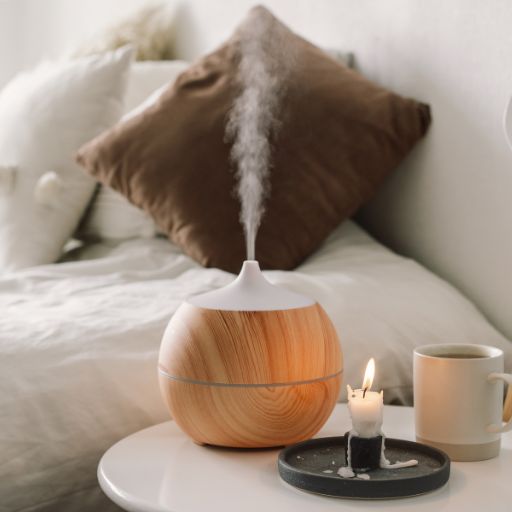
Best Choice = Diffuser
Aromatherapy is therapy using scents from plant extracts. Sometimes, people refer to it as essential oil therapy. The method has been used for many years, and diffusers are an excellent tool. Aromatherapy can help with pain, stress, insomnia, and more.
Diffusers work well with aromatherapy because they are made to spread essential oils into the air. However, you need to clean them regularly, and should ideally use distilled water. Diffusers also don’t heat the water, making them safe to use with essential oils.
Essential oils should not be placed in the water tank of a humidifier. You can use a humidifier for aromatherapy, if it has a separate essential oil tray. However, it is possible to add scented demineralized water or soluble scents to the water to fragrance your home.
Please keep in mind that this is not the same as aromatherapy.
Diffuser vs Humidifier for Allergies

Best Choice = Both
Allergies can make your life a nightmare, and dry weather adds to the misery. Dry air can further irritate your respiratory tract, making breathing harder. This irritation can lead to coughs and other aggravated symptoms.
By adding moisture to the air, humidifiers can provide some relief. It can help soothe your throat and nasal cavities. However, increased humidity levels can also trigger allergies since they promote the growth of dust mites and mold.
You can avoid this by using a self-regulating humidifier. These modifiers only add moisture till the air has the desired humidity level. Another thing you can do is clean your humidifier regularly. If your humidifier is adding dirty water to the air, it’s not going to do your allergies any good.
Diffusers can help your allergy symptoms too, but you’ve got to use suitable oils. Some oils, like lavender and eucalyptus, can help reduce inflammation. However, others, like tea tree oil, may trigger allergies. It’s all about discovering suitable products for you.
Humidifier vs Diffuser for Sinus and Congestion

Best Choice = Humidifier Diffuser Combo
There’s a stuffy nose, and then there’s sinusitis. You usually get congestion when blood vessels in your sinuses become inflamed. If you’ve ever suffered from sinus pain, you’ll understand the headaches and sense of pressure within your skull.
This inflammation may arise for several reasons, like allergies, dry air, etc. Humidifiers can help with sinus and congestion by adding moisture to the air. Moist air can help with decongestion and thinning out the mucus in the nasal passages.
“The nose is supposed to provide humidity and warmth and and clean the air that passes through it. Forced heating systems in homes and workplaces often over-dry the nasal passages, aggravating allergies and sinusitis.”
Mark A. Zacharek, MD via everyday health
Just make sure you purchase an automatic humidifiers that shuts off when the humidity reaches the optimum level. If you can’t do that, run the humidifier intermittently. Moreover, you must clean the humidifier regularly to prevent bacterial spread and mold growth.
Essential oil diffusers can also assist with sinus and congestion The American Sinus Institute confirms these 8 essential oils are the best choices for sinus and congestion:
- Peppermint – helps relieve congestion
- Menthol – helps clear sinus cavities
- Eucalyptus – natural anti-inflammatory
- Lemon – antibacterial and anti-inflammatory
- Clove – antimicrobial and soothing
- Tea Tree – antiviral and antimicrobial, helpful for sinusitis due to allergies
- Frankincense – lung relaxant
- Rosemary – helps with coughs, colds, resistant bacteria and chronic congestion
Diffuser vs Humidifier for Cold
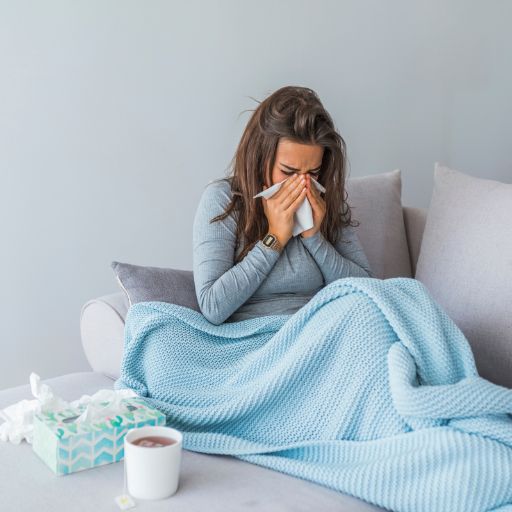
Best Choice = Cool Mist Humidifier
During winter, the air is dry and respiratory illnesses like colds are rampant. Congestion, runny nose, headaches, teary eyes, sneezing, etc., are common cold symptoms.
When humidifiers are distribute moisture into the air, they help to ease most of these symptoms. The Mayo Clinic recommends using a cool mist humidifier over a warm mist humidifier or vaporizer, stating that by the time the air reaches your lungs it will have cooled to the same ambient temperature.
Diffusing eucalyptus oil may also provide symptomatic relief from colds and coughs.
Diffuser vs Humidifier for Plants
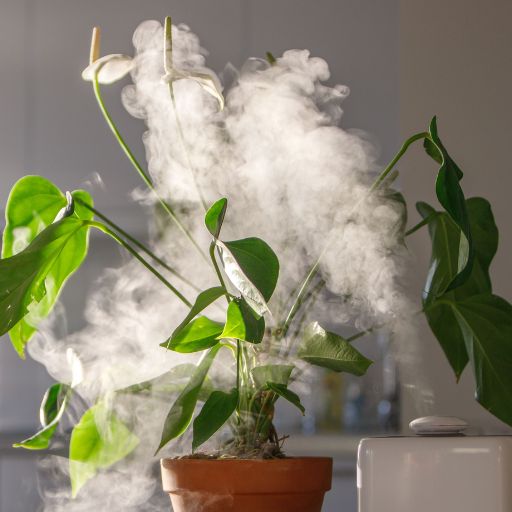
Best Choice = Humidifier
Plants need certain levels of humidity to achieve optimal growth. If you don’t give tropical plants enough water, they will start to die, especially if you live in a dry area.
Humidifiers can help with that. You can use a humidifier to regulate the moisture levels in your house or wherever the plant is located. You can even place small humidifiers near the plants to ensure the rest of the house isn’t affected as much.
Of course, you could use a diffuser too. However, diffusers don’t provide as much moisture. If you must, you can place your diffusers near a small plant. Diffusers can also work if the plants don’t require overly high humidity levels.
Humidifier vs Diffuser for Baby
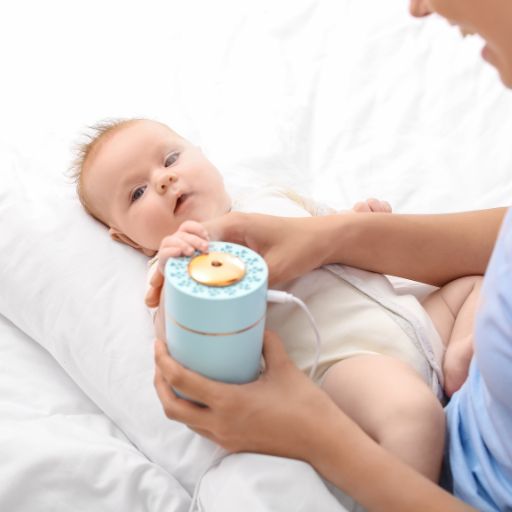
Best Choice = Cool Mist Humidifier
Babies get chest and nasal congestion quite often. As a result, it might be difficult for them to sleep properly during the dry weather. Humidifiers can make the situation better by introducing some humidity to the environment. This will moisten their breathing passages, making it easier to breathe and sleep.
However, there are still things you need to consider before you place a humidifier in your baby’s room:
- Choose a cool mist humidifier for safety.
- If you baby is crawling and exploring, ensure that the cord is hidden.
- Since babies have weaker immune systems, proper cleaning and maintenance is critical.
Stagnant water left in a humidifier could lead to bacteria or mold growth if you don’t clean the humidifier daily. The humidifier will introduce these contaminants into the air, making your child ill.
Essential oil diffusers aren’t recommended to use around babies until they are over 8 months old. Babies are still developing their respiratory systems, so breathing in essential oils isn’t recommended.
If you must have one, you can look for special blends that are designed for babies. These blends are more diluted and less likely to cause harm.
Please note, peppermint oil should never be used around children under 2.5 years of age.
Frequently Asked Questions
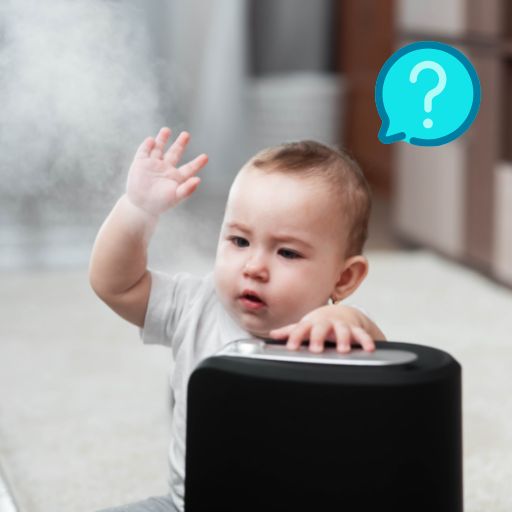
Should I use a humidifier or diffuser?
A humidifier is a good choice if your house has little moisture, a diffuser is used in aromatherapy. Some humidifier models have essential oil trays to have the benefit of aromatherapy and humidification.
Do diffusers help with dry air in the house?
Diffusers add water to the air, however, aren’t as efficient as humidifiers. Humidifiers are a better choice if you live in an arid area. If you don’t need to add much moisture to your home, a simple diffuser may be enough.
Should I sleep with a humidifier in my room?
If your room is air-conditioned, sleeping with a humidifier may be beneficial for you. Ensure you place the humidifier at least 3 feet away from your bed.
Now You Know the Difference Between Diffusers and Humidifiers
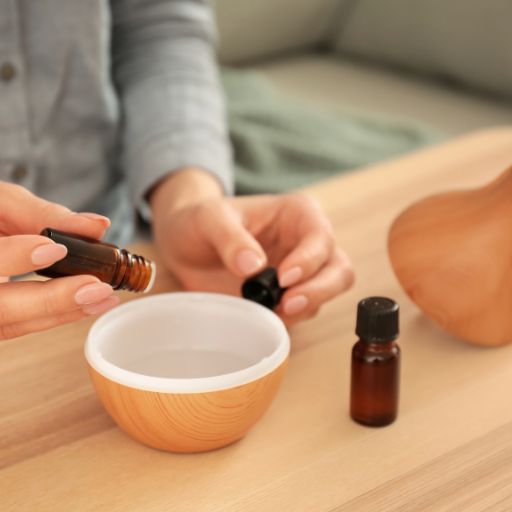
Now you know the difference between diffusers and humidifiers, you can choose which one will best suit your needs. Humidifiers are often used during the Winter months only, when the air is dry.
Aromatherapy can be beneficial not just in Winter, but all year round. When it comes down to comparisons, diffusers are small versions of humidifiers.
Most people choose a humidifier over a diffuser, simply because diffusers aren’t big enough to adequately humidify larger spaces. This post on choosing a humidifier based on room sizes will help you determine what size best suits your needs.
Whichever you choose, remember to use distilled water. Don’t be tempted to use essential oils in your humidifier, you can cause damage.
- Do Steam Cleaners Kill Dust Mites? - January 6, 2024
- How to Get Rid of Dust Mites in Clothes: Proven Strategies for a Mite-Free Wardrobe - January 6, 2024
- How to Use a Face Steamer (incl Tools) | Step by Step Guide - December 18, 2023


